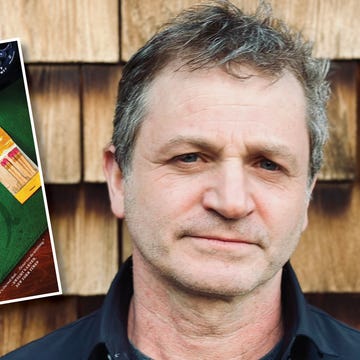Author Leigh Bardugo found fame and fortune with her magical YA novels. Her Shadow and Bone trilogy was made into a Netflix series, and her books regularly top bestseller lists. Six years ago, Bardugo took the leap to adult fiction and began building new worlds for her legions of readers, now conquering a new, older audience. Bardugo joins Alta Live and writer Edan Lepucki (who profiled Bardugo in Alta Journal’s Issue 31) for an intimate conversation on the challenges and rewards of writing for different audiences, what it’s like to see her characters come to life on the small screen, and what comes next for an author with devoted fans numbering in the millions. Whether you’re a Bardugo die-hard or new to her work, you won’t want to miss this live interview with one of literature’s hottest fantasy authors.
About the author:
Leigh Bardugo is the No. 1 New York Times bestselling author of The Familiar and Ninth House and is the creator of the Grishaverse (now a Netflix original series), which spans the Shadow and Bone trilogy, the Six of Crows duology, the King of Scars duology—and much more. Her short fiction has appeared in multiple anthologies including The Best American Science Fiction and Fantasy. She lives in Los Angeles and is an associate fellow of Pauli Murray College at Yale University.
About the moderator:
Edan Lepucki is the author of the novella If You’re Not Yet Like Me and the novels California, Woman No. 17, and Time’s Mouth, which was long-listed for the Joyce Carol Oates Prize and named Book of the Week by People magazine.
Lepucki is a graduate of Oberlin College and the University of Iowa Writers’ Workshop, and her fiction and nonfiction have been published in Alta Journal, the Atlantic, Esquire, the New York Times Magazine, and McSweeney’s, among other publications. She was the guest editor of Best American Nonrequired Reading 2019, and her story “People in Hell Want Ice Water” is available as an Audible Original.
Here are some notable quotes from the event:
- On the writing process: “I have many friends who have an internal sense of the rhythm and beats of a story, and they don’t need to outline and they write wonderfully. But I’m not like that. I have to know where I’m going or I can’t get there. I have started a lot of books that I never finished because the first act is the easiest act—you’re introducing things; every door is being thrown open. But the bulk of the book, the heart of the book, is the second act. And it’s the longest chunk of it. I never knew how to build that. I would get to the end of that first act, and I would hit a wall, and I would be so intimidated by what was coming next.”
- On advice for new writers: “The most challenging thing for any aspiring writer, or new writer, I think, is to find the process that works for you and then trust it and invest in it. When I started out, everybody was like, ‘You have to write 1,500 words a day.’ And so I felt like a failure if I wasn’t doing that. The reality is, that doesn’t work for a lot of people. And the only rule of processes is, What allows you to get from beginning to end? What will allow you to maintain momentum and finish a manuscript?”
- On world-building: “Sense of place and sense of power are the twin pillars of any kind of world-building, fictional or nonfictional. That is sort of the guiding principle for me. I believe you can take people anywhere if they have the right signposts, if they can find a way to settle, and if they feel grounded and don’t feel like they’re constantly being asked to renegotiate the rules in terms of the world.”
- On pitching one’s work: “It’s very rare that a book goes nowhere or that an idea really fizzles and dies. So keep your head up, work on something else, stay distracted, and spend time with friends.… Remember that if this isn’t the one, it doesn’t mean you’re not talented. It doesn’t mean the work isn’t worthwhile. It just means right now the market wasn’t ready for it.”
Check out these links to some of the topics brought up this week.
- Read Lepucki’s “The Fantasy Life.”
- Check out our Leigh Bardugo primer.
- Grab your copy of Bardugo’s The Familiar, Six of Crows, and Shadow and Bone. And check out more of Bardugo’s work.
- Look into Bardugo’s book rec: The God of the Woods, by Liz Moore.
- Grab your copy of Lepucki’s Time’s Mouth, Woman No. 17, and more.•











